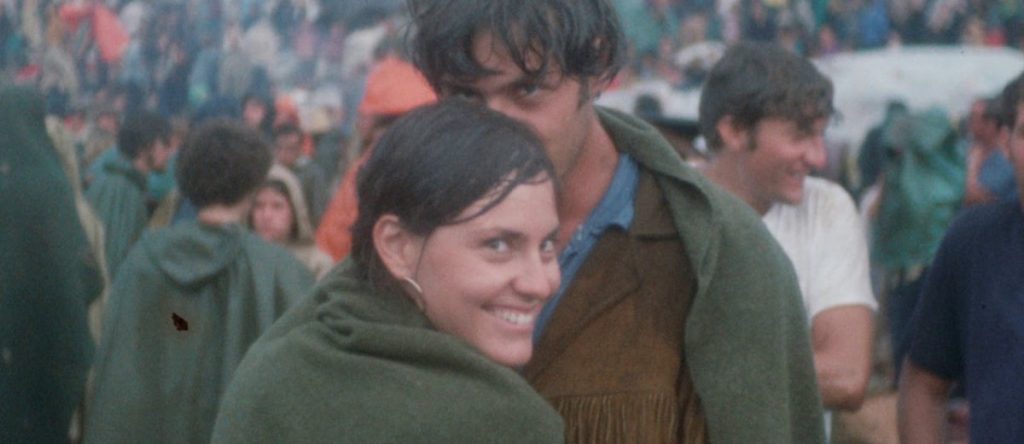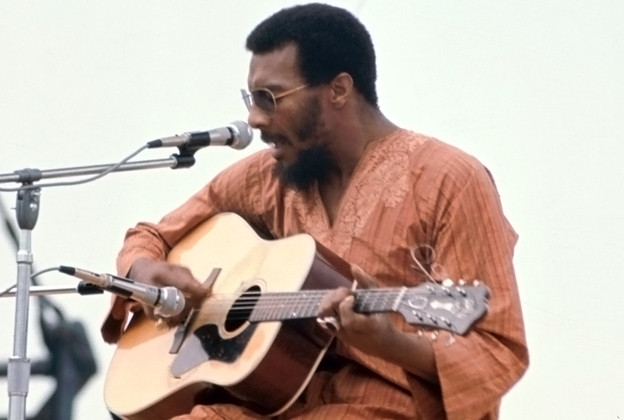Following its opening-night volunteer meeting, Mountainfilm presented Woodstock: Three Days That Defined a Generation, as a free event aimed at gathering locals and those interested who arrived at the festival early Thursday night. Directed by Barak Goodman, this film captures the raw details of the music festival that started it all. Woodstock was held in Bethel, New York on August 15-18 in 1969. Michael Lang was the man who brought Woodstock to life, due to him wanting to come up with enough money to build a recording studio. Woodstock was known as “three days of peace and music,” that brought over 400,000 hippies to one location where no violence took place, just peace and music.
Michael Lang and those who helped him create Woodstock were in awe when hundreds of attendees started to show up more than a week before the festival. Attendees started to show up before the stage was even completed and fully set up. The crowd that attended the music festival was unbelievable, until you physically see the film for yourself. Cars were backed up for miles, cars were overly packed, hitch hikers were pick up by anyone and the street became the parking lot. People made friends with everyone and no enemies were in sight, getting out of their cars while parked to make friends with the fully packed cars around them. It seemed as if everyone that attended had a free spirit and open mind.

“Free concerts, a fair amount of acid, and lots of pot”
“Free concerts, a fair amount of acid, and lots of pot” was a statement in the film that really describes how Woodstock was, there was not a single person who did not consume LSD or marijuana during those three days. Even though many people view drugs as a bad thing, Woodstock did not, and they were prepared for the worst. They had designated tents for those attendees who experienced a bad trip and a system for taking care of them. Those who had bad trips would be attended to, then when that individual felt better it was their job to take on the next attendee who was having a bad trip and so on. Food and water eventually ran out with no warning, yet, no one panicked. The United States Army came to the rescue by flying in helicopters filled with enough food and water to feed the attendees of Woodstock. People were more than grateful and shared their food with everyone and that was made very clear in the film. Giving was important in a situation like this. Woodstock was a community of people who came together for three days, where nothing but peace, happiness and smiles came about. Violence, judgement, unfair treatment and so much more was not an option with this community.

Richie Havens performing “Freedom” at Woodstock
Richie Havens made an appearance and gave a performance at Woodstock that will be remembered forever all because of his song Freedom. “Freedom was created right there on stage,” he said, and the freedom of being who you are and a lot of levels of that was presented at Woodstock in 1969. This film turned the negative problems that happened at Woodstock to be viewed as a positive and that was my favorite part of the film. Barak Goodman says it the best “If your younger and have ever wondered why Woodstock was such a big deal, the raw stuff of the counterculture is all here: the anti-war movement, free love, nudity, drugs, communal living, abundant grooviness and, of course, epochal music.” Overall, I thought it was a great film and everyone around me seemed to enjoy it as well. Being able to view Woodstock: Three Days That Defines a Generation was a great way to kick off a film festival noted for being a testament to the human spirit.


Recent Comments